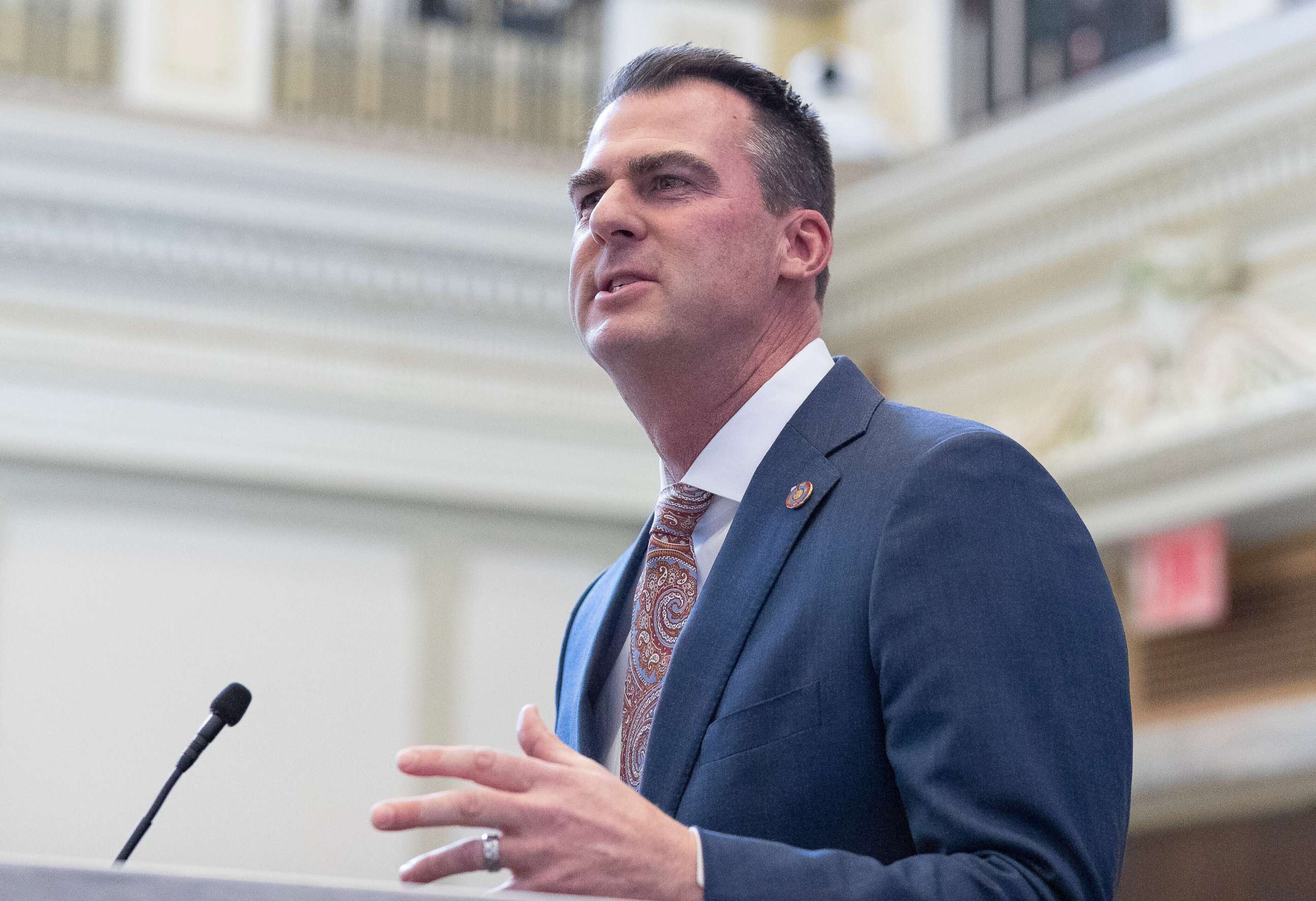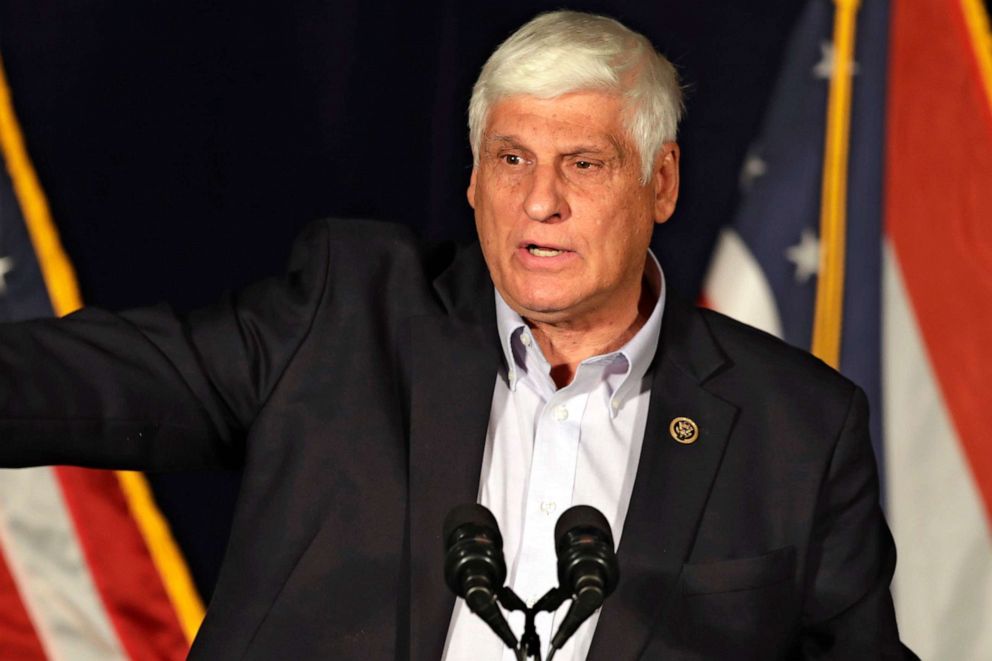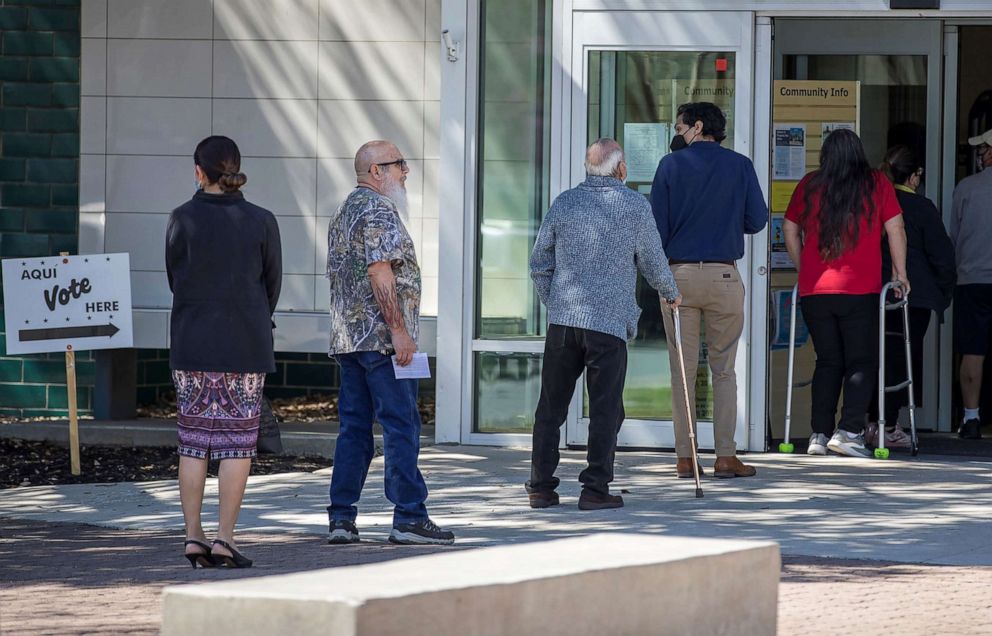Abortion maneuverings deepen divisions: The Note
Much action has hinged on the expectation that SCOTUS is poised to upend Roe.
The TAKE with Rick Klein
It's a huge week for Supreme Court politics, with Judge Ketanji Brown Jackson on track for Senate confirmation Thursday.
For as quickly as that's moved, state-level action on abortion policies has been downright dizzying -- in red states as well as blue, and sometimes in reaction to each other.
Just in the last few days, GOP lawmakers in Oklahoma passed a near-total abortion ban. Arizona Gov. Doug Ducey recently signed a law banning abortions after 15 weeks of pregnancy, and the Republican legislature in Kentucky just passed a similar bill -- both based on the Mississippi law now in front of the Supreme Court.

Moving in the opposite direction, Gov. Jared Polis this week made Colorado the 16th to enshrine a right to abortion in state law. Oregon recently approved $15 million to prepare for fallout from neighboring Idaho, which passed a ban based on Texas' anti-abortion law. California Gov. Gavin Newsom signed into law a measure designed to make abortion more affordable for those with private insurance.
Much of the action is prompted by the expectation that the Supreme Court is poised to upend abortion politics and policy in considering the constitutionality of the Mississippi law and declining to block the Texas law. State laws on abortion have long been a confusing and contradictory patchwork in part because Roe v. Wade froze so much of the status quo nearly half a century ago.
The swearing-in of Jackson to replace a retiring liberal justice won't change the court's balance on abortion rights. But what's already changing in a range of states leaves a nation more divided than ever on an issue that could dominate politics this fall in unpredictable ways.
The RUNDOWN with Averi Harper
Another Republican member of the House is stepping aside ahead of the midterm elections.
Rep. Bob Gibbs, R-Ohio, announced he would not seek reelection. Gibbs was first elected to represent Ohio's 7th District in 2011. He partially blames ongoing legal disputes about redistricting in his state for his decision.
"It is irresponsible to effectively confirm the congressional map for this election cycle seven days before voting begins, especially in the Seventh Congressional District where almost 90 percent of the electorate is new and nearly two thirds is an area primarily from another district, foreign to any expectations or connections to the current Seventh District," Gibbs said in a statement.

But it's not just redistricting that would have been an obstacle for Gibbs. Former President Donald Trump had already endorsed another candidate in the race, former aide Max Miller, which added an additional layer of uncertainty for the incumbent congressman. Gibbs' decision not to run came a day after Rep. Fred Upton, R-Mich., who voted in favor of impeaching Trump, announced he wouldn't run again for the seat he's held for 35 years.
Nineteen Republican House lawmakers have opted not to run for reelection compared with 31 Democratic House lawmakers.
An endorsement from Trump has been a boost for some candidates, helping to clear the field and scare off incumbents who aren't aligned with the former president. But that isn't true across the board. Trump endorsees in several states, including battlegrounds North Carolina and Georgia, are considered long shots in their primary battles -- a signal that a Trump endorsement is no guaranteed ticket to the general election.
The TIP with Alisa Wiersema
Data released by the Texas secretary of state's office regarding the March 1 primary election turnout indicates a significant increase in mail ballot rejection rates from years past. The data coincides with this election being the first under the revised rules of Senate Bill 1.
As previously reported by ABC News, the new regulations surrounding voter identification under the GOP-backed legislation appeared to create immediate ripple effects in election administration as early as January. In some of the state's biggest counties, like Harris and Tarrant, hundreds of Texans eligible to vote by mail initially saw their mail ballot applications rejected due to heightened proof of identity requirements.

Of the more than 3 million ballots cast in March, nearly 200,000 ballots were cast by mail. Of those, more than 24,600 ballots -- or about 12.4% -- were rejected. Both parties saw tens of thousands of mail ballot rejections, although more Democrats cast ballots by mail than Republicans. Overall, 12.87% of mail ballots cast by Democrats and 11.77% of Republican mail ballots were not counted.
The secretary of state's office did not specify how many rejections were due to issues stemming from new election laws. But as a point of comparison, research by the U.S. Election Assistance Commission shows that in the 2018 Texas primary, less than 2% of mail ballots were rejected of the more than 500,000 mail ballots cast.
The revelations renewed criticism from Democratic state lawmakers who said they long predicted the fallout.
"Republicans claimed their anti-voter #SB1 would make it 'easy to vote and hard to cheat.' As [Texas House Democratic] members predicted, it has accomplished neither. SB1 just makes it hard to vote," tweeted Texas House Democratic Chair Chris Turner.
NUMBER OF THE DAY, powered by FiveThirtyEight
1. That's the number of Supreme Court justices confirmed since Justice Stephen Breyer who have received more than 69% of the Senate's votes. That distinction belongs to Chief Justice John Roberts, and what's more, when we looked back in February at just how partisan the Supreme Court nomination process has become, we also found that only Roberts had earned the backing of a majority of the other party's senators. That is unlikely to change with Ketanji Brown Jackson's nomination. Just three Republican senators -- Susan Collins, Lisa Murkowski and Mitt Romney -- are expected to join Senate Democrats in voting to confirm Jackson to the court. Read more from Geoffrey Skelley about how contentious the Supreme Court nomination process has become.
THE PLAYLIST
ABC News' "Start Here" Podcast. Start Here begins Thursday morning with more evidence of brutal attacks by Russian troops on Ukrainian citizens. ABC's Kirit Radia, takes us through it and breaks down the international community's response to more sanctions. Then, ABC News Correspondent Alex Perez joins us from Minnesota to discuss the decision not to charge the police officer who fatally shot Amir Locke while serving a no-knock warrant. And, NerdWallet's Anna Helhoski talks about the Biden administration's latest extension of the student loan payment pause and how borrowers should react. http://apple.co/2HPocUL
WHAT YOU NEED TO KNOW TODAY
Download the ABC News app and select "The Note" as an item of interest to receive the day's sharpest political analysis.
The Note is a daily ABC News feature that highlights the day's top stories in politics. Please check back tomorrow for the latest.




